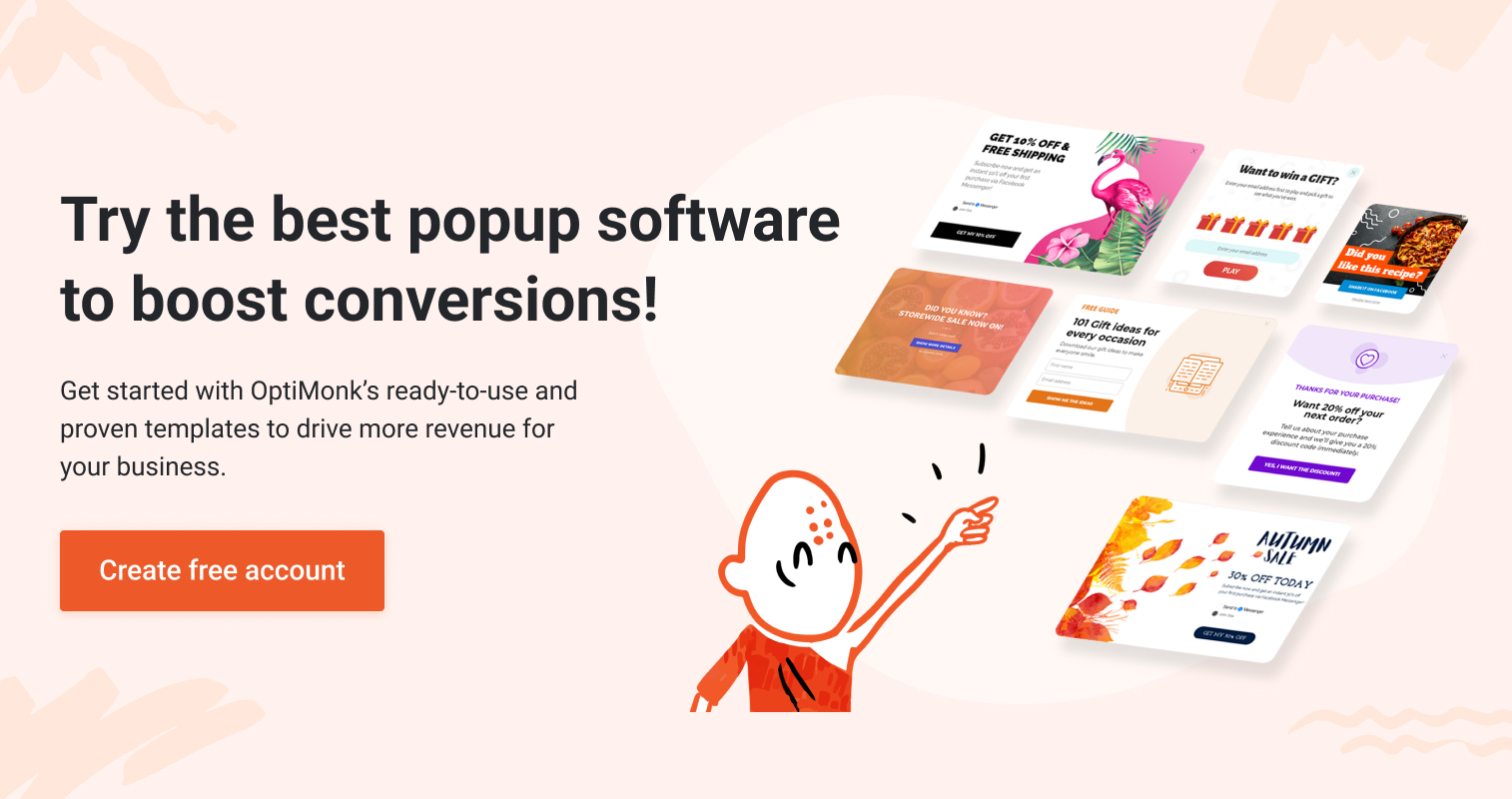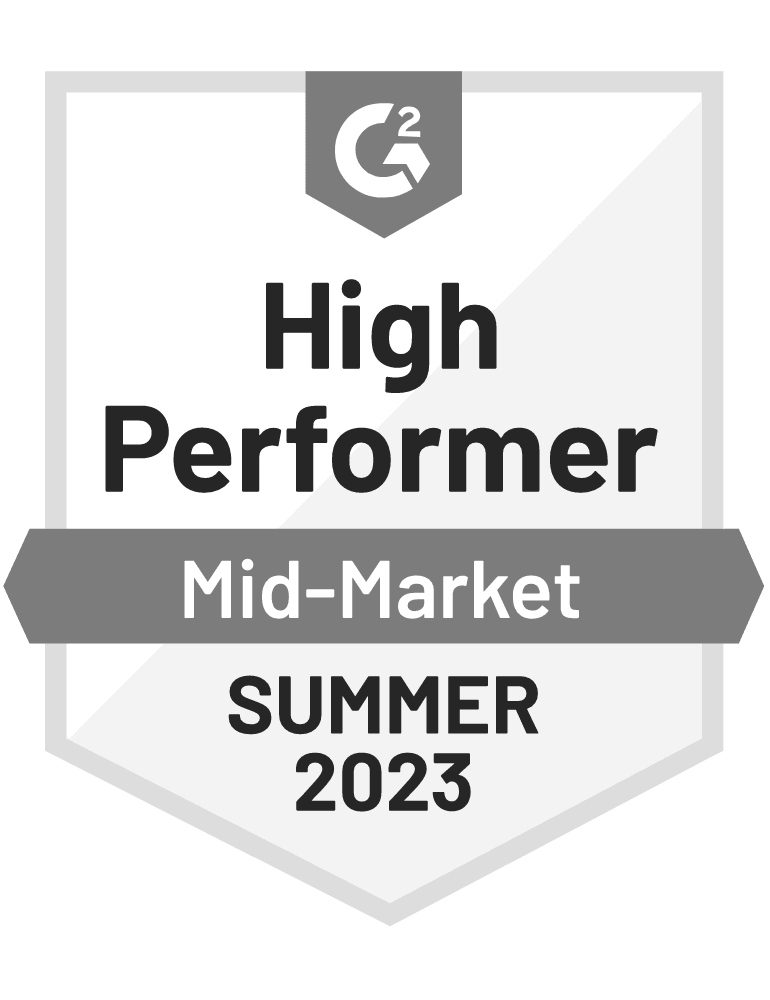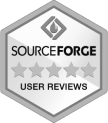Finding software to improve your online store is never easy. And popup plugins are no exception—with so many tools promising to boost your conversion rates. This article is for you if you’re having trouble figuring out which popup builder best suits your needs.
We’ll go over the essential features of popup software. Then, we’ll take a close look at the top ten popup plugins and apps.
Let’s get going!
What should you look for in a popup software?
Online businesses rely on popups to inform their visitors about sales and promotions, reduce cart abandonment, and grow their email lists. Since those are such diverse tasks, you’ll want to make sure that your popup builder software is capable of creating great popups for any type of campaign.
Here are the most important attributes of popup builders:
1. Lots of pre-made templates
It’s so much easier to get popups onto your site when you use pre-made templates.
They are especially important if you don’t have graphic designers and web developers on your team.
Not only should the popup templates look great, but they also need to be optimized for different use cases. That means you should be able to find templates for exit-intent popups as well as lead capture forms. Having these popup templates is the bare minimum for a popup software, but gamified popups and personalized options are a major plus.
2. Customization in an easy-to-use editor
While popup templates provide an excellent starting point, you’ll often want (or need) to customize them to fit the look and feel of your online store.
Making changes to templates shouldn’t require any coding skills. Rather, it’s best to find a popup maker that allows you to easily customize your campaigns.
The best popup software offers a no-code popup builder. For example, drag and drop editors are intuitive and easy-to-use. They allow you to change the text, colors, and layouts of the templates without the help of a developer.
3. Mobile-friendliness
Today’s world is a mobile world. Website visitors often shop on their phones. But mobile viewing presents its own challenges. A mobile popup could cover your visitor’s phone screen. Not to mention that it could be difficult for visitors to find the right place to tap in order to close the popup.
That’s why you need to make sure that your popups will look equally good on any device, and they won’t annoy your visitors.
4. Advanced targeting options
Many of the best popup campaign strategies require you to only show specific popups to certain segments of site visitors.
Great popup tools have lots of targeting options and allow you to personalize your messages based on the customer journey. A few basic examples are URL-based targeting, geotargeting, new and returning visitor recognition, or targeting based on traffic source.
However, the best popup software should have more advanced targeting options like targeting based on cart value or cart content.
5. Testing capabilities
Even the most advanced marketing professionals can have trouble predicting how well a particular popup will perform. This is why A/B testing is so important: you can use data to tell you which versions of your popup convert traffic best.
You should also be able to create unlimited versions of a popup to test which color, copy, and triggers result in the highest conversion rate.
6. Detailed campaign analytics
The need for detailed analytics of your campaigns goes hand in hand with the need for testing capabilities. Since any marketing campaign—popup-focused or not—is an investment, it’s pivotal that you have the data to know whether or not you’re making a good return.
It’s just not worth it to use a popup builder software that doesn’t come with advanced analytics. The most important analytics you need to see are the number of impressions, conversions, and conversion rates. But it’s best if you can see assisted revenue as well.
7. Integration with your favorite tools
Finally, your popup software should be compatible with the tools you use for your ecommerce website and marketing campaigns.
There’ll be no end to your headaches if there’s no seamless integration between your CRM platform and your popup software.
It’s equally important that your email marketing tools work well with your popups. Then, you’ll be able to transfer your leads to MailChimp or whatever you use and get in contact.
What's the best popup builder software?
Now that we’ve learned what you should look for in a popup tool, let’s take a look at our top 10 popup software.
All of these popup tools bring something different to the table. Because they’re so diverse, we’re sure there’s a perfect popup builder software for everyone on this list.
1. OptiMonk
OptiMonk is an extremely powerful popup tool in ecommerce right now. The feature-rich popup builder allows you to create popups that are stunning, convert at high rates, and won’t annoy your site visitors. And you can create unlimited popups, even in the free plan.
That’s why it has gained more than 400 5-star reviews on the Shopify App Store.
Let’s take a closer look at some of its key features.
300+ high-converting, customizable templates
OptiMonk’s huge template library makes it easy to get started in no time. There are over 300 templates to choose from, all of which are professionally designed and mobile-friendly.
Even better, the templates are optimized for different use cases. Whether you’re looking to build your email marketing list, use an exit-intent popup to fight cart abandonment, or want to gamify the user experience with lucky wheel popups, you’ll find a template.
And there are a number of themes that help you create multiple visually-consistent popup campaigns. This leads to a smoother user experience on your website.
Flexible drag & drop editor
The OptiMonk drag and drop editor allows you to customize your popup campaigns with ease.
You can even create your popups from scratch. With one click, you can add, edit, or remove any element.
And there’s a wealth of elements you can use. There are basic ones like text boxes, images, and buttons. And there are advanced features like countdown timers, product elements, and coupon elements—just to mention a few examples.
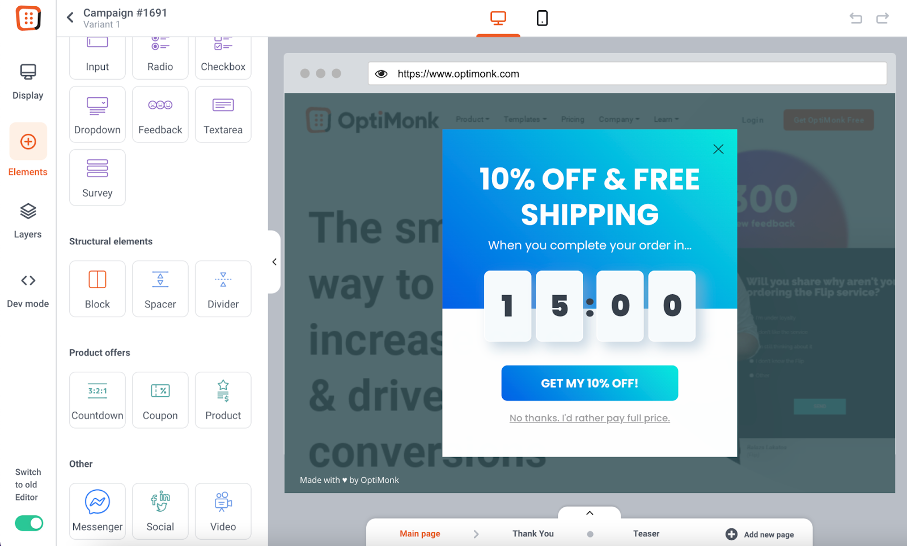
Triggering options
OptiMonk’s advanced triggering options are hugely beneficial when it comes to showing popup messages at the right time. OptiMonk automatically monitors your visitors’ site behavior, so it can display popups exactly when you want them to be shown.
Some of the specific actions that can trigger your campaigns include:
- Exit-intent technology (on desktop and mobile)
- Timer-based triggering
- Scroll-based triggering
- On-click triggering
- Post-JavaScript event triggering
Website owners can effectively optimize the conversion rate of their popups when they have this much control over their timing.
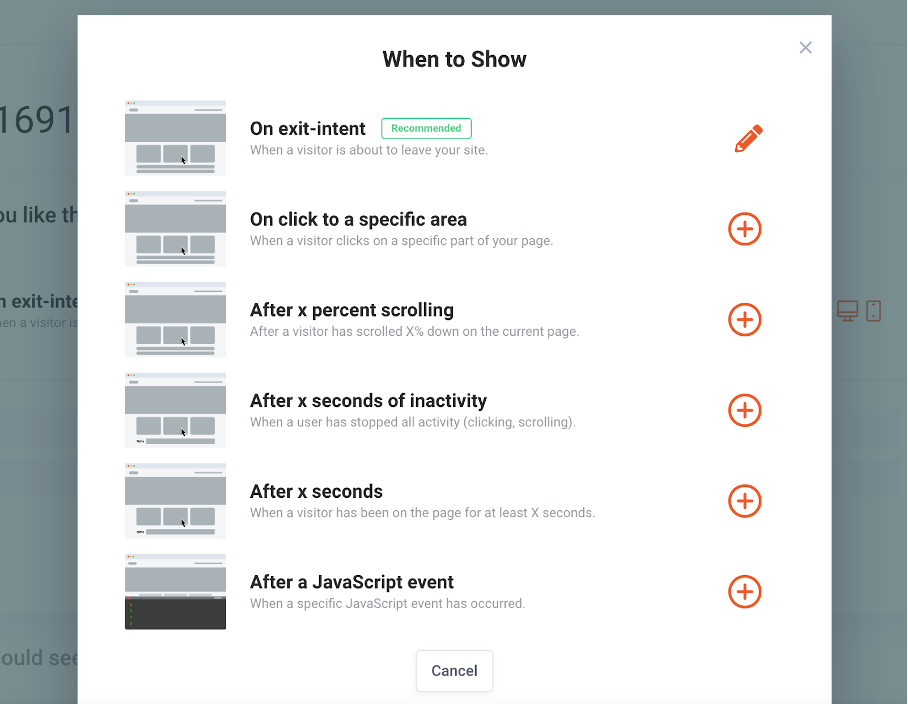
Advanced targeting
You can target your visitors with specific messages based on a huge number of factors. When you deliver tailored messages to particular segments of your website visitors, you can deploy offers and promotions that will resonate with them.
As you know, the more relevant your messages are, the more likely they will be to convert. That’s why it’s great that OptiMonk’s popup software allows you to create as many messages as you like for each visitor segment.
Specifically, you can target your visitors based on their location, the pages they’ve visited (or not), and utilize “cart rules” to set up specific popups based on what’s already in their cart. You can even build “sales funnels” to link all these different types of campaigns together.
And you can also create your own custom variable to determine who your popups appear to. You have endless customization options here!
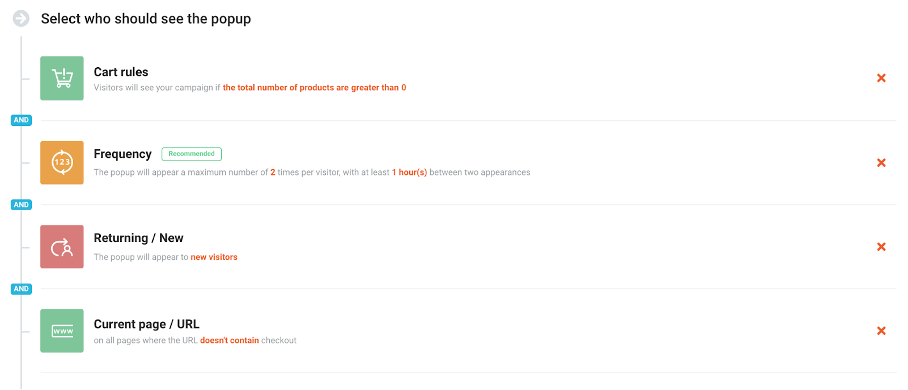
Many types of popups
OptiMonk doesn’t only offer the classic square popup, but also a variety of other (innovative) types of popups:
- Sticky bars
- Sidemessages
- Fullscreen popups
- Gamification popups
- Surveys
Since OptiMonk organizes its popups by over 35 different use cases, it’s easy to get inspired by campaigns that will support your goals.

A/B testing
You can easily A/B test your campaigns and keep track of their performance. But the unique feature that OptiMonk brings to this domain is the ability to gauge the statistical confidence of your results.
What’s statistical confidence? It’s a measurement that shows if the performance of a specific campaign will stay consistent.
If a variant of your campaign has the highest conversion rate and statistical confidence of over 90%, it becomes the “champion variant.”
With OptiMonk, you can use the “Keep only the winner variant running” feature, which will automatically deactivate all the lower-performing variants once a champion is found.

Advanced analytics system
OptiMonk’s advanced analytics lets you see the performance of all your campaigns in terms of the number of impressions, the number of conversions, and conversion rates.
And Shopify stores can also see the amount of money OptiMonk generates for them.
OptiMonk also integrates with Google Analytics for detailed data and analysis.
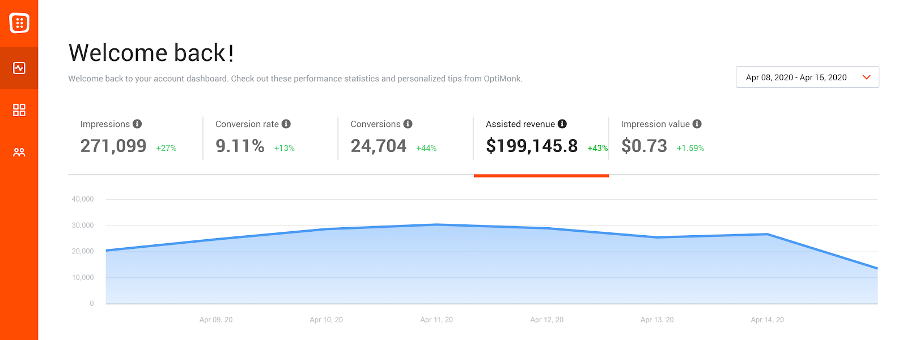
Integrations
You can easily integrate OptiMonk with all of your favorite tools that you need to run your online store. Below is a list of some of the many integrations available through OptiMonk (and you can see the full list here).

Other key benefits:
Smart headline generator: Have our AI-powered Smart Headline Generator come up with catchy headlines and increase conversions.
Ecommerce-specific features: Like dynamic product recommendations, auto-generated coupon codes, auto-redeem function, and Shopify-specific targeting options.
It won’t slow down your website: OptiMonk popups load after your website, so they won’t interfere with the Largest Contentful Paint (LCP). This is one of the most important metrics in Web Vitals (an initiative by Google that delivers guidance for quality signals that indicate a “great” site experience).
Google, AdBlock & GDPR safe: OptiMonk campaigns are fully GDPR compliant and Google friendly, so you and your customers are safe and secure.
Who should use OptiMonk?
We’d recommend OptiMonk for almost all ecommerce stores as well as marketing agencies that work with ecommerce stores.
We think OptiMonk’s popup software works so well for different types of clients because of its balance between ease-of-use and flexibility.
An individual store owner can run beautiful and effective popup campaigns by using templates and the drag and drop editor. On the other hand, agencies and large to medium size businesses can take advantage of the more complex features like HTML/CSS editing and custom targeting rules.
Pricing
Free, or from $39/month.
2. Sleeknote
Sleeknote is a popup builder that offers feature-rich popups and a large template library. It also allows for A/B testing and provides lots of performance data on the back end.
Although Sleeknote is powerful, many of its advanced features are locked behind its rather expensive premium plans. Here are some of those impressive features:
Multi-step campaigns
Sleeknote’s multi-step popup campaigns provide you with tons of options for tailoring your messages to users at different stages of the customer journey.
For instance, you can target your messages to returning visitors; thereby, offering deals to your loyal customers.
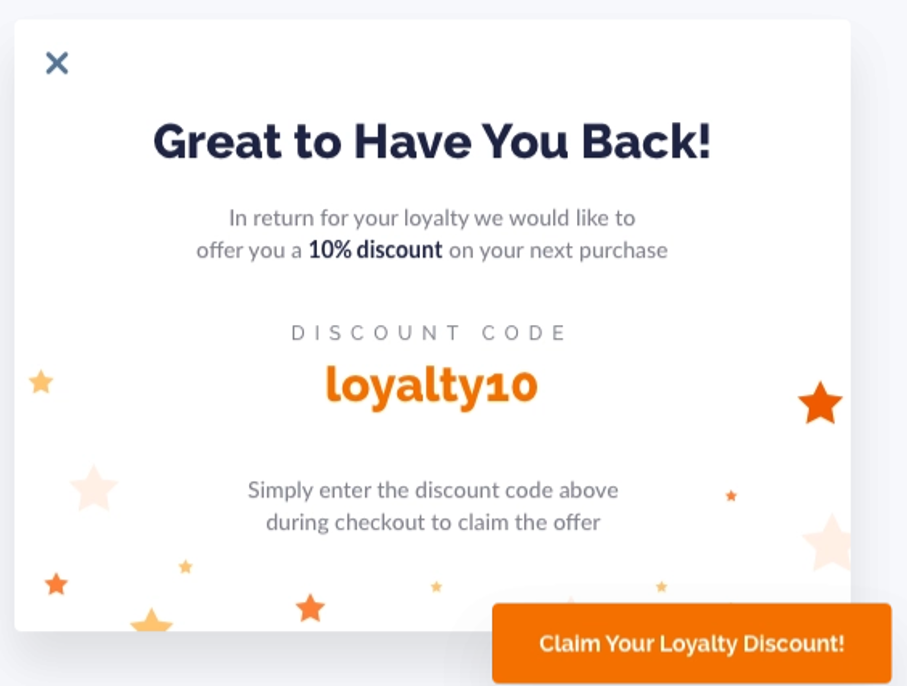
Goal tracking
Sleeknote’s goal tracking feature allows you to set goals for each campaign you run and receive tips on how to improve.
This is useful because your campaigns convert at a different rate. For example, you can expect your email signup campaigns to convert at a lower rate than cart abandonment popups (since the latter are shown to customers much further along in the sales funnel).
Integrations
Sleeknote’s popup software is well-supplied with integrations. You can use all major CMR platforms and marketing integrations with Sleeknote.
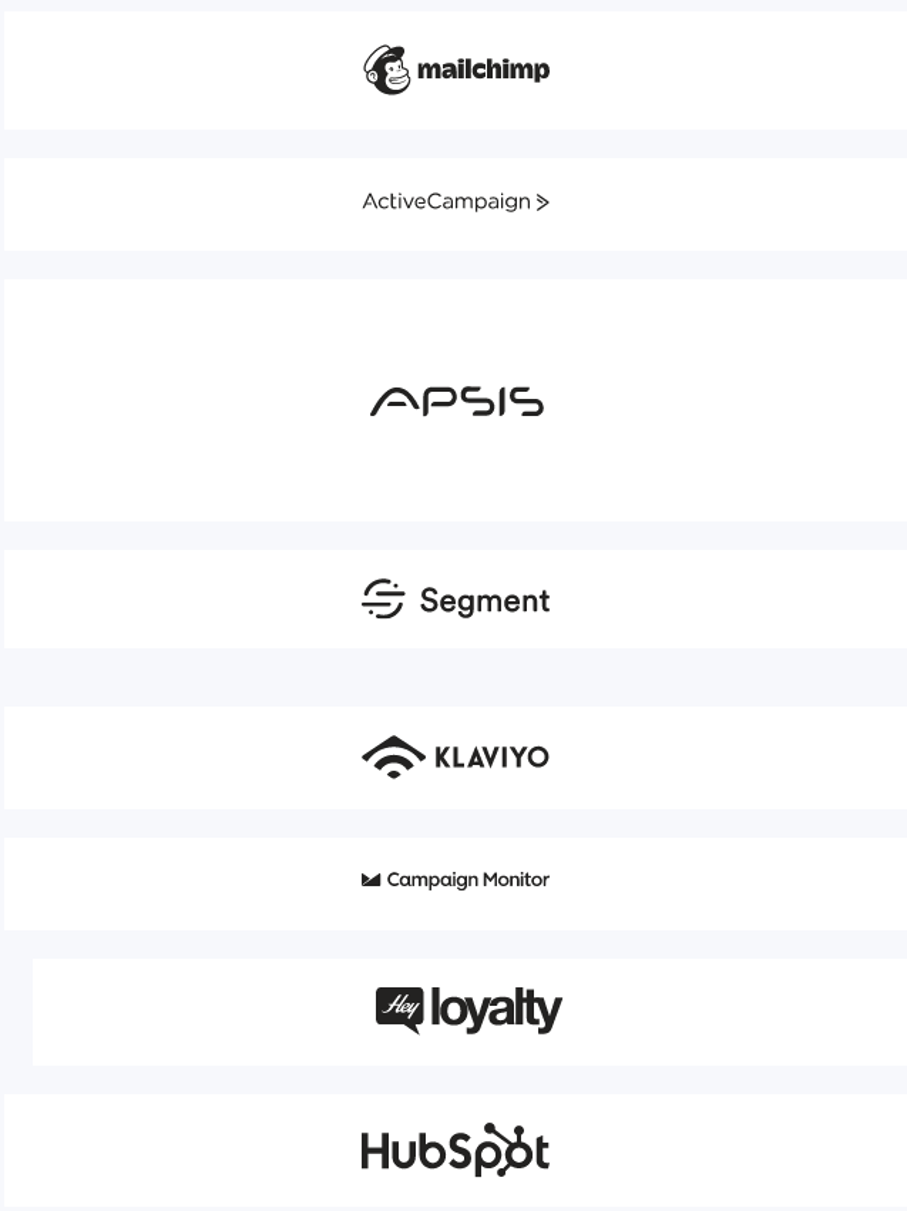
Who should use Sleeknote?
Sleeknote is for you if cost is no issue in your search for top-of-the-line popup software.
Pricing
From €62/month. 7-day free trial available.
3. Privy
The third entry on our list is a marketing platform that brings together a number of functionalities. With Privy, you can create popups and run your email marketing through their app.
However, this dual functionality has both pros and cons. While using only one platform is convenient, the available features can fall behind a software that’s dedicated to just one purpose.
Lead generation popups
Since Privy is geared towards marketing to your contact list, they have lots of popup templates meant for that purpose.
They also have other popup types, such as cross-selling and gamified popups, but they do lack other types like fullscreen popups and sidemessages.
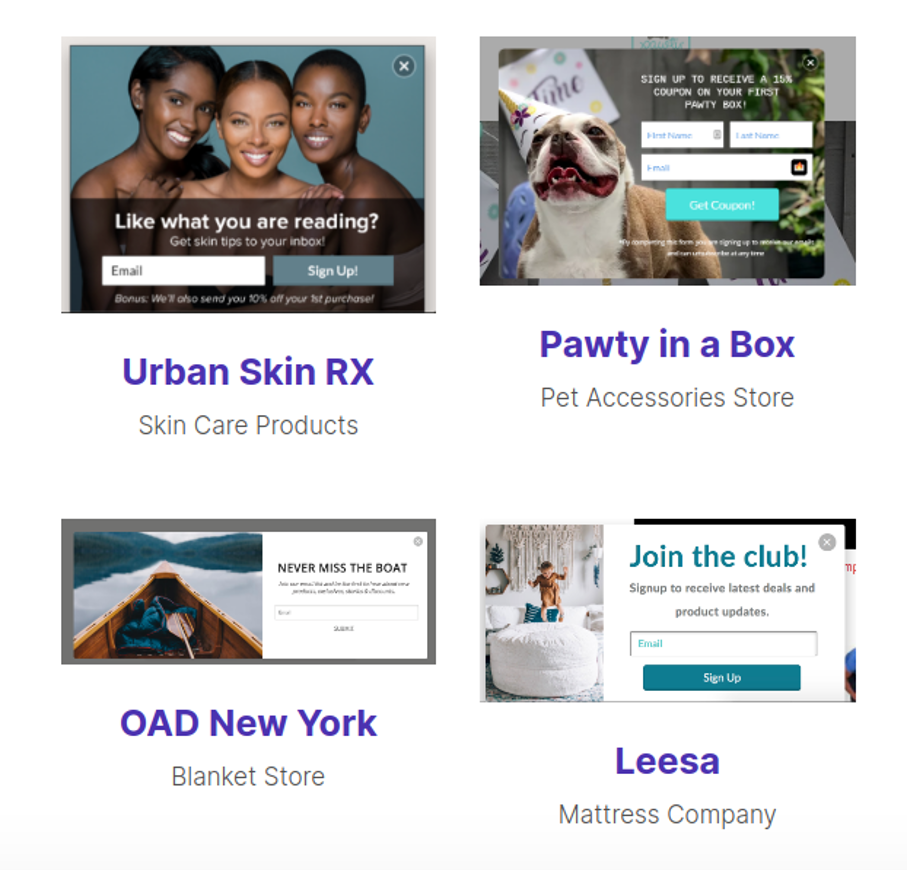
Cart abandonment emails
One great feature of Privy is its system for sending cart abandonment emails. If an exit-intent popup fails to generate a conversion, you can try again with an email prompting users to complete their transaction.
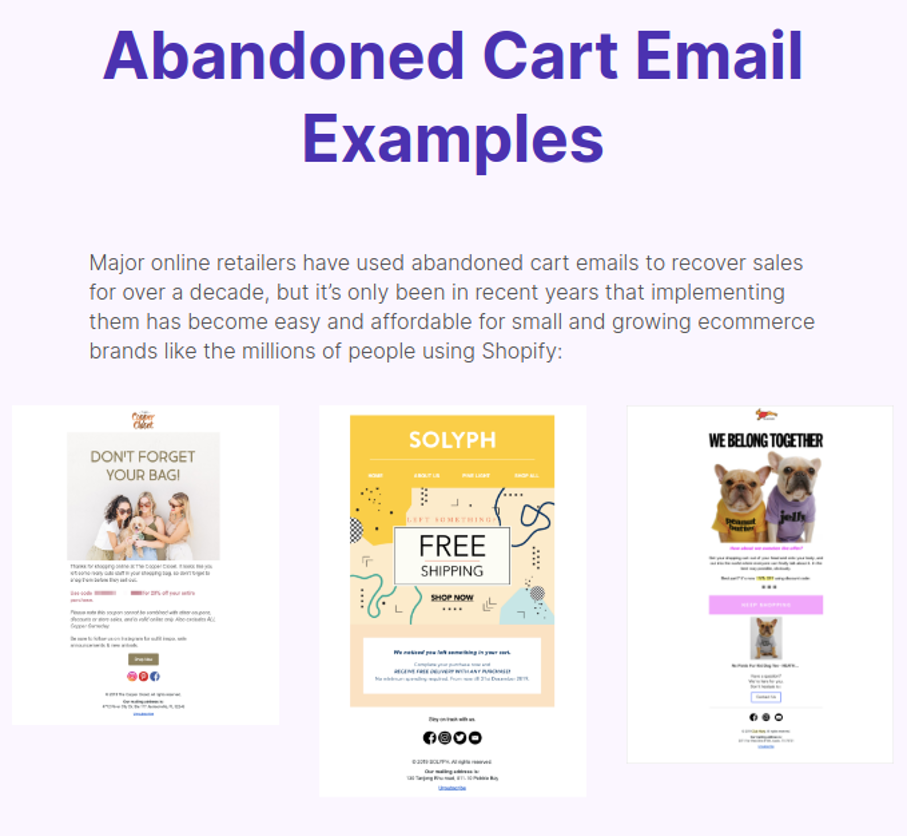
Who should use Privy?
Privy is great for store owners who love the simplicity and running as much as possible through a single platform. However, others might prefer to use a more powerful marketing tool in combination with a dedicated and feature-rich popup maker.
Pricing
Free for 100 contacts or less, then from $30/month.
4. OptinMonster
OptinMonster helps ecommerce stores generate leads using popups and inline forms. They have a large template library that contains many types of popups with reliable features.
Drag and drop editor
Their platform has an advanced popup editor that offers a great deal of customization.
You can add and edit elements like times, contact forms, and images easily so your popups blend in seamlessly with your store’s theme.
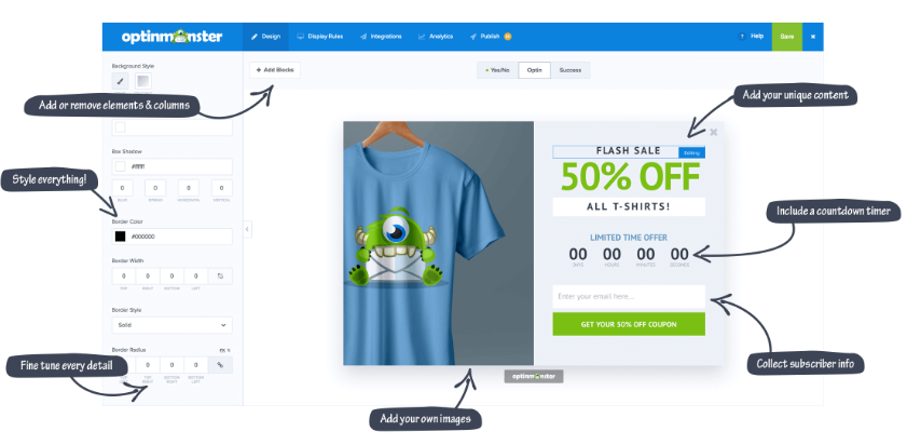
Targeting features
OptinMonster also gives you access to an impressive suite of triggering and targeting tools. These include exit-intent, geo-location, page-level targeting, and an “InactivitySensor.”
There are also options for using both onsite retargeting and follow-ups to improve your conversion rate.
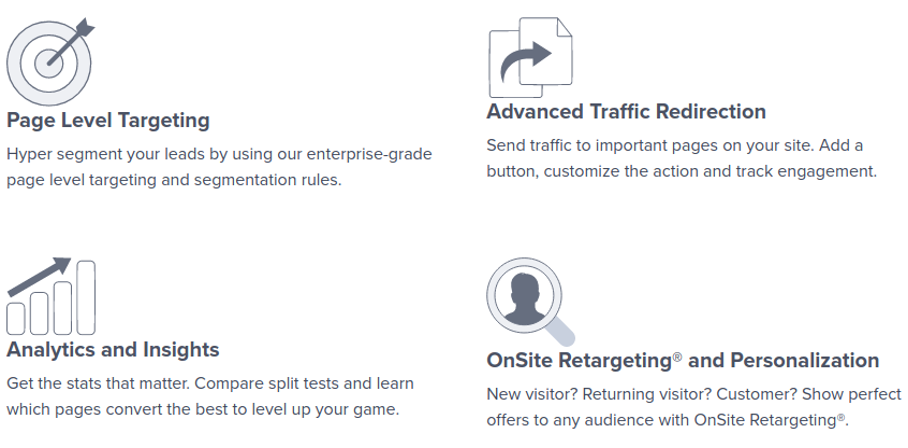
Who should use OptinMonster?
OptinMonster can be a useful popup tool for lead generation. Ecommerce stores that rely on their contact list for a large percentage of their sales should consider using this popup software.
Pricing
From $19/month.
5. Justuno
Unlike some of the lead generation tools we’ve just gone over, Justuno’s popup software is all about conversions. The company leverages an advanced AI system to deliver insights to your customers and their preferences.
Personalized popups
Justuno automatically gathers data about your users to personalize your popups. Based on the browsing history of each customer, you can recommend certain products or deliver tailored messages that will appeal to them.
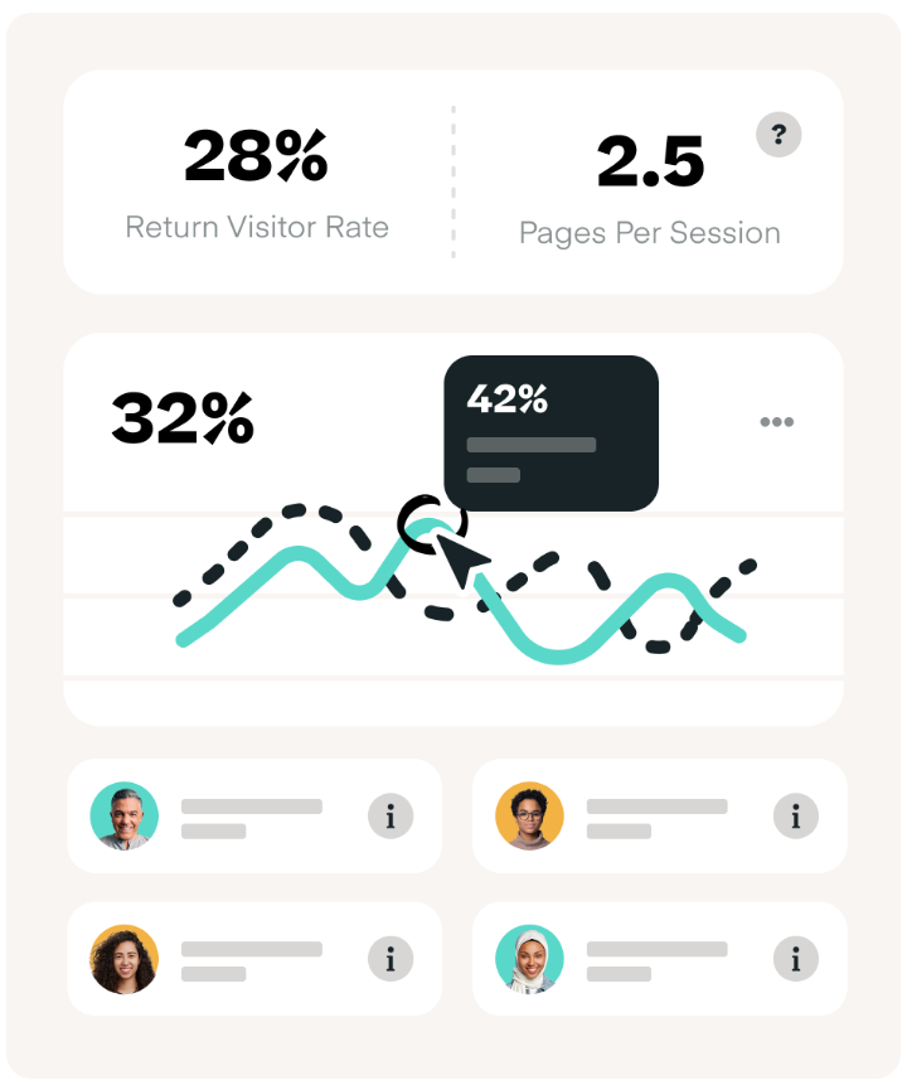
Upselling and cross-selling
You can also take advantage of Justuno’s personalization features while upselling and cross-selling products to your customers. The specific offers that Justuno displays to your customers will be based on what they’ve already shown interest in.
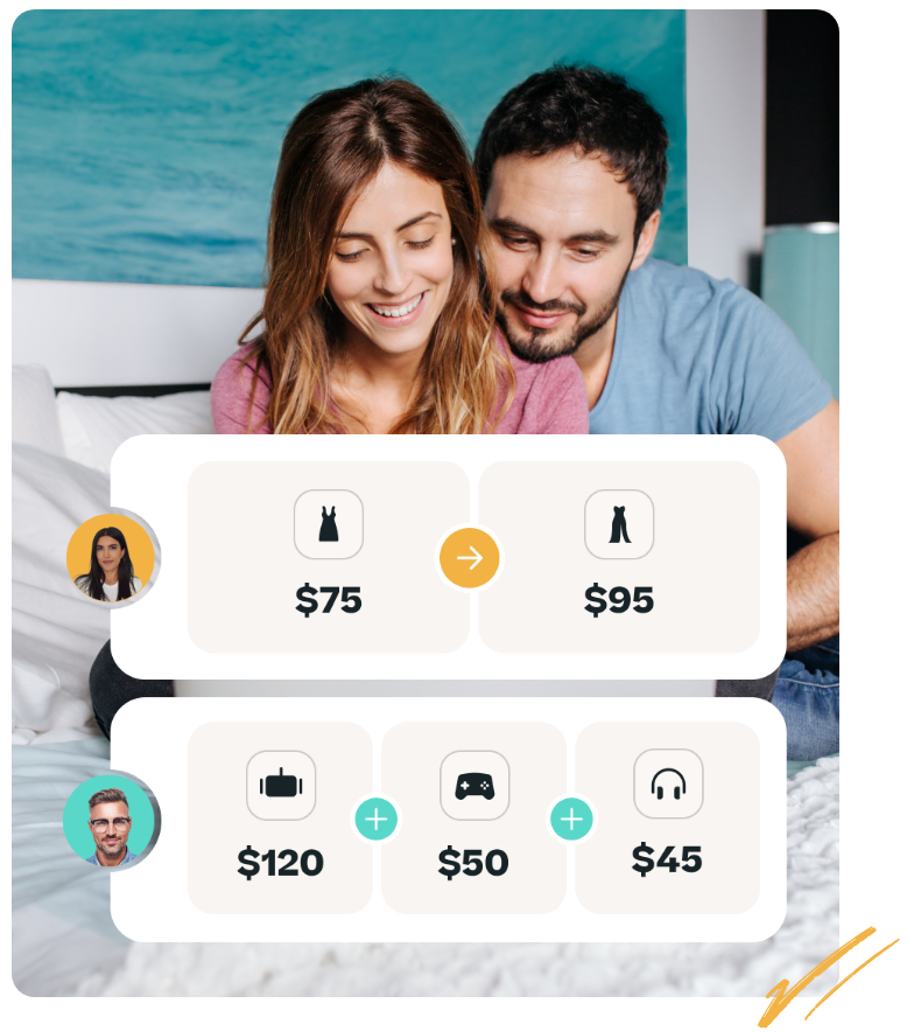
Who should use Justuno?
Justuno is incredibly powerful, but not all ecommerce stores need its advanced segmentation and personalization features.
Since you have to be on the Justuno Plus payment tier to access their AI-recommendation engine (which will cost at least $399/month), we’d only recommend it for very large ecommerce operations.
Pricing
From $29/month.
6. Sumo
Sumo is a popup maker that’s focused on streamlining the setup process, so you can capture leads quickly and reliably. They have several options for creating list-building popups, which include time-based, scroll-based, and exit-intent popups.
List building popups
The centerpiece of Sumo’s product is their list-building popups, which come in a few different arrangements.
Sumo is all about convenience—with a “set it and forget it” approach to list building. You can get great-looking popups onto your site in just a few minutes or less.
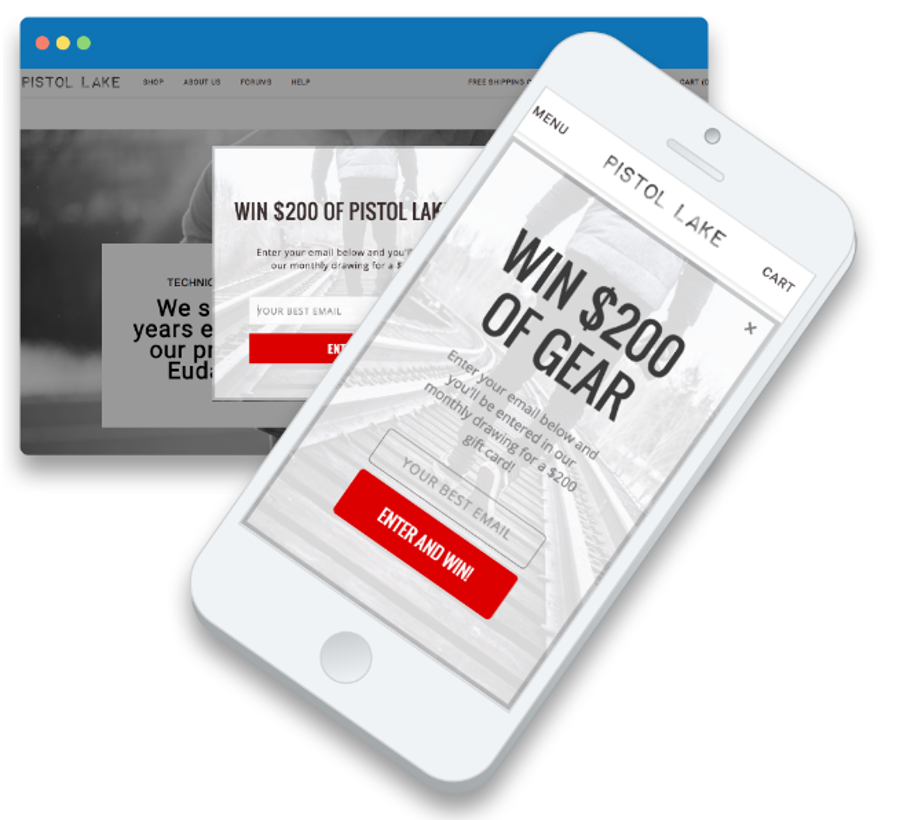
Integrates with other Sumo products
Sumo is part of a family of apps that many ecommerce store owners might find useful. This includes email marketing software and “KingSumo,” which helps run viral giveaways.
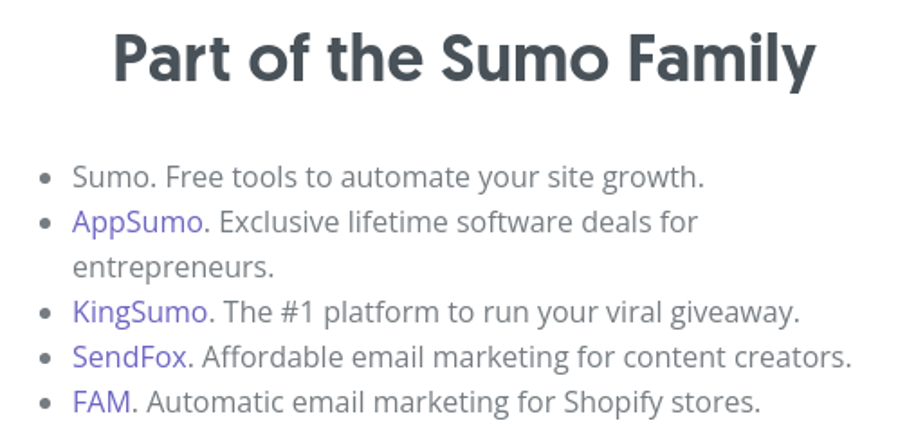
Who should use Sumo?
Store owners who value simplicity and convenience should consider Sumo. Sumo is effortless to use if all you want to do is, say, set up a fullscreen popup on your landing page and keep it running.
Pricing
Free, or $49/month.
7. Wisepops
Wisepops is a well-equipped popup builder that provides users with flexibility while creating unique popups.
Drag and drop editor
Wisepops drag and drop editor allows for lots of customization for two reasons. First, you’re able to get into the CSS code and modify anything you like and. Secondly, there are tons of elements you can add. These include images, videos, and social media buttons.
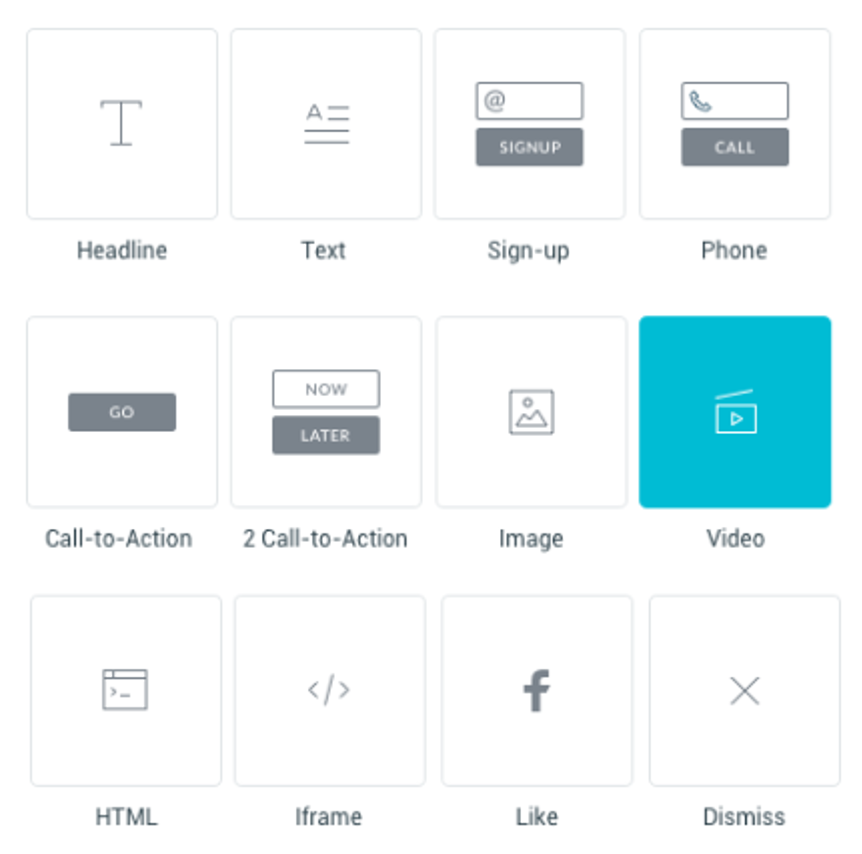
A/B testing and analytics
Wisepops comes equipped with amazing A/B testing and analytics capabilities. By testing out multiple variants of your campaigns, you can be sure they’re performing as well as possible.
The analytics page allows you to set custom goals for your popups, and it also integrates with Google Analytics.
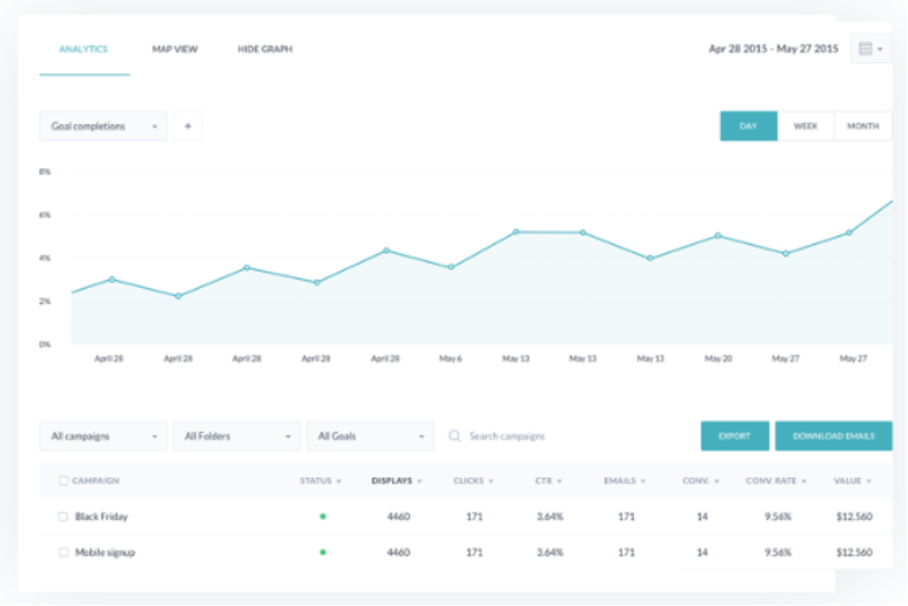
Who should use Wisepops?
Wisepops is great for people who already have good design chops. That’s because you’ve got lots of options and freedom to create different popups, but you only have a relatively small amount of templates to work with (60, to be precise).
Pricing
From €49/month.
8. Poptin
Poptin helps ecommerce sites add popup campaigns to capture leads. Their lightbox popup templates are excellent, while they also allow you to create sidemessages and fullscreen popups.
Exit-intent popups
One nice feature of Poptin for smaller stores is the fact that their exit-intent popups are available on their free plan.
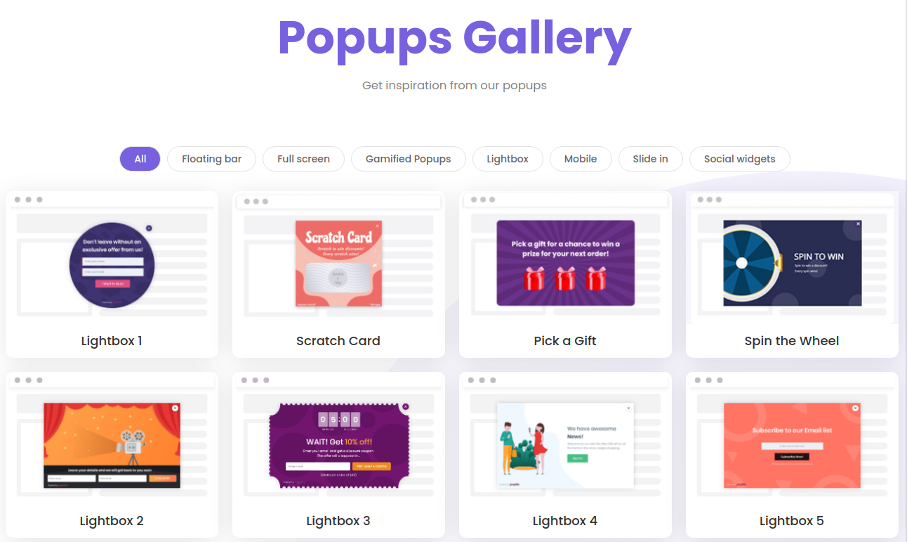
Built-in autoresponder
Although Poptin doesn’t offer a full email marketing tool, they do allow you to automatically send “Welcome” and “Thank You” emails to new subscribers.
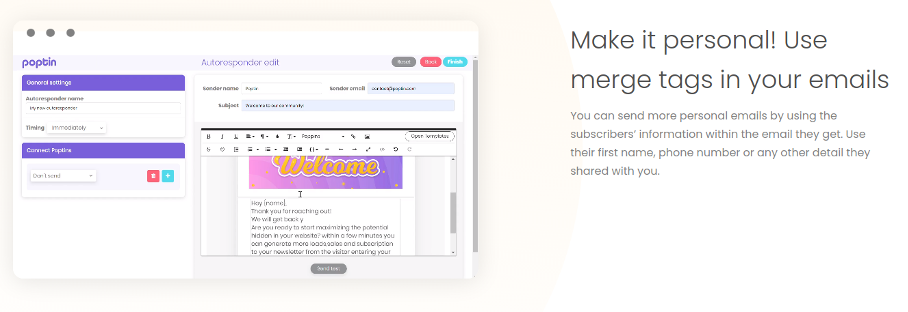
Who should use Poptin?
Poptin is ideal for a specific set of users: those who want to capture contact info and send a thank you email but aren’t interested in running a full email marketing campaign or newsletter.
Pricing
Free, or from $25/month.
9. Mailmunch
Mailmunch can act as both a popup plugin and a full email marketing software. You can use their editor to create lead generation popups and emails to send when someone subscribes to your list.
Triggering options
Mailmunch has several targeting options to choose from—spanning the clever use of exit-intent technology to an ever-present floating bar.
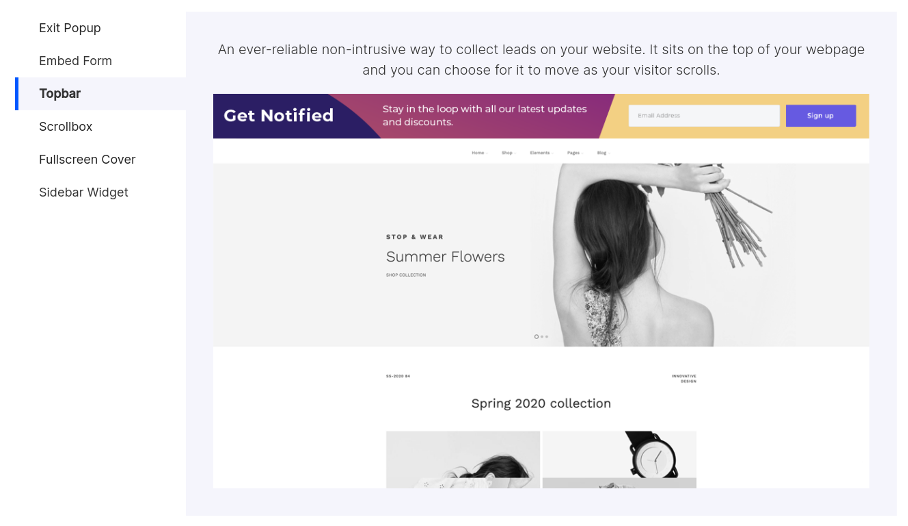
Personalized email marketing
Once you’ve built up a list of contacts, you can use Mailmunch’s personalized email campaigns to send individually tailored messages on their own.
Having access to this level of email marketing automation helps store owners deliver persuasive messages without having to spend too much time creating them.
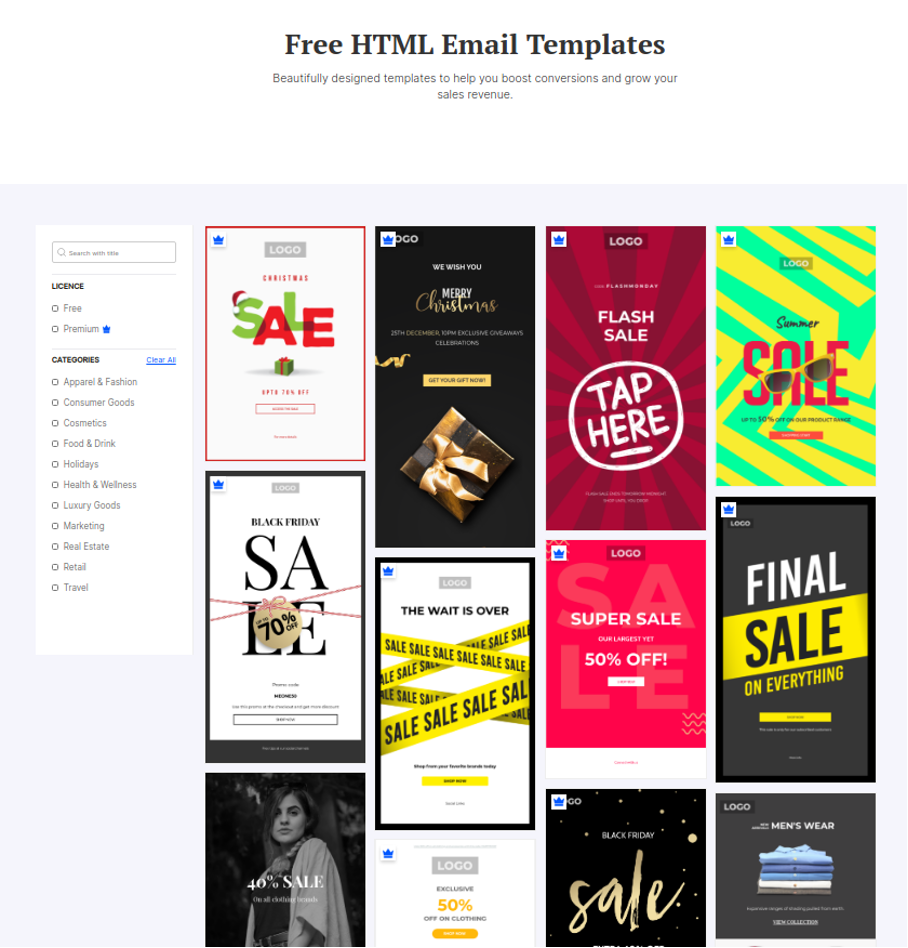
Who should use Mailmunch?
Mailmunch’s great email marketing functionality makes it useful for ecommerce stores that rely on email for keeping in touch with their customers. They have some good-looking templates, but there aren’t very many to choose from.
Pricing
From $19.99/month.
10. Wishpond
Wishpond bills itself as an “all-in-one marketing platform,” which is appropriate because their services cover everything from social promotions to landing pages (and, of course, popups).
Basic popup technology
Wishpond offers customizable popups and several triggering/targeting options. However, you don’t have as much control or options as you would with dedicated popup software.
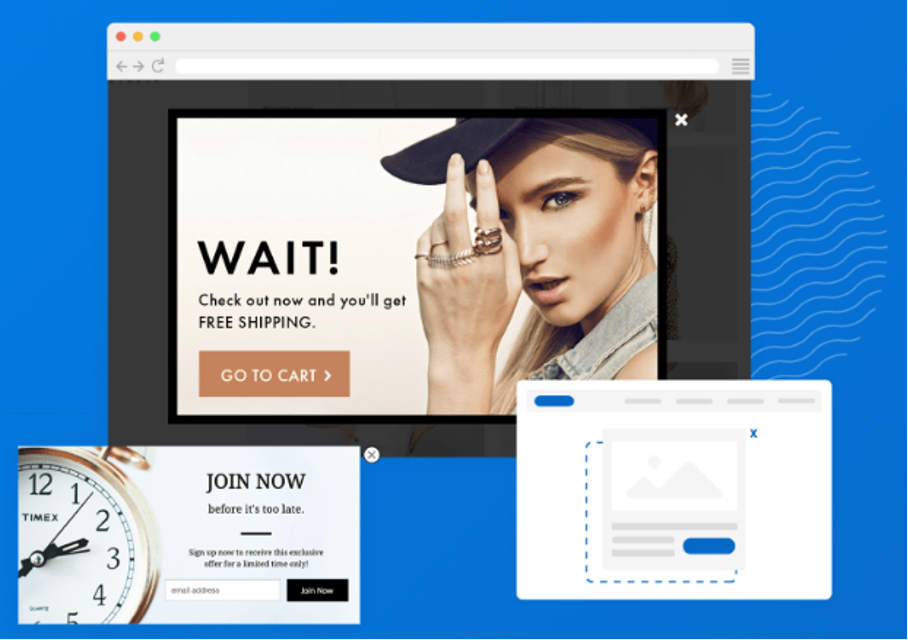
Other features
There’s a whole bunch of additional ecommerce features available in Wishpond. These include:
- Email marketing
- Lead database
- Payment systems
- Ad campaign scheduling
- Exit surveys
Who should use Wishpond?
Store owners who don’t want to juggle several different SaaS products might be interested in Wishpond. If you’re already on a feature-rich CRM tool (like Shopify or WooCommerce), you’ll automatically have access to many of the extra features available within Wishpond.
Pricing
No free plan. You’ll need to speak to Wishpond’s customer service for custom pricing.
Summing up
After going through our list of the best popup software available in 2024, we hope you’ve found one that fits your needs.
When it comes to pure popup-making capabilities, dedicated software—that only does one thing but does it well—is your best bet.
With a smart editor, lots of templates, and limitless targeting and triggering options, OptiMonk remains the top choice. Why not give OptiMonk a try? Create a free account here.

